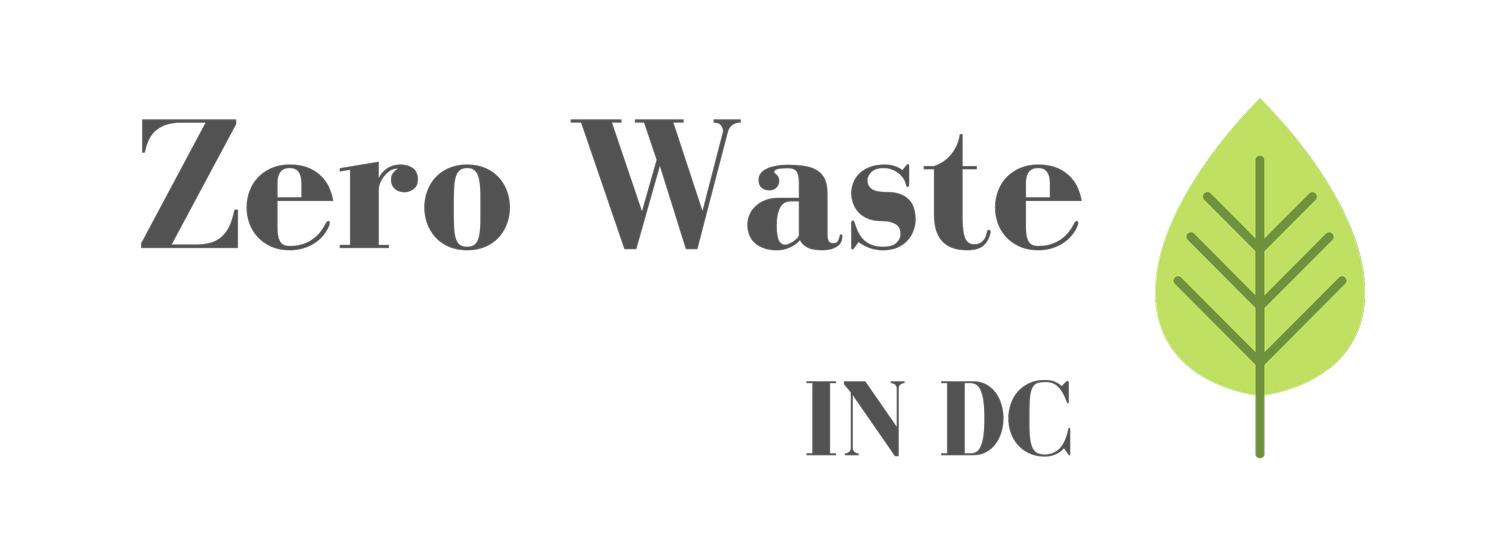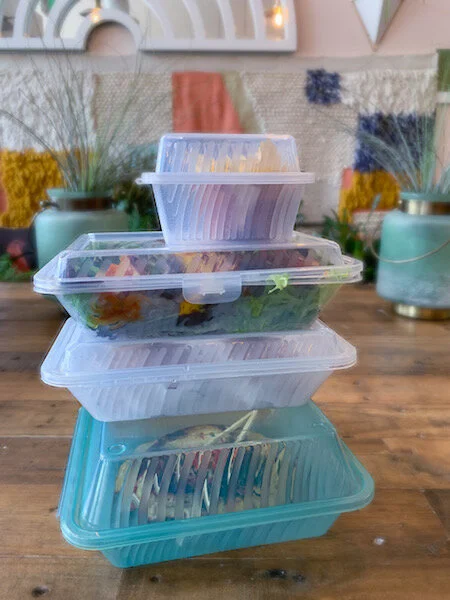Three Ways to Support Your Local Eco-Businesses
If you’re reading this, chances are you already care about the environment. And chances are you would want to do what you can to support local businesses trying to find solutions to your community’s and the planet’s thorniest waste and climate challenges.
But if you are like most people, you may not be clear on what kind of support these businesses want most.
According to an article in the Harvard Business Review, The Elusive Green Consumer, there’s a concept called the intention-action gap. In other words, consumers who say they want to support sustainability-oriented businesses in theory often don’t do so in practice.
“Few consumers who report positive attitudes toward eco-friendly products and services follow through with their wallets. In one recent survey 65% said they want to buy purpose-driven brands that advocate sustainability, yet only 26% actually do so.”
So, what can a well-intentioned consumer do to stay true to her intentions? And beyond using the eco-product or service, are there other ways to show support?
I asked four businesses in my region—all recent start-up companies—what kind of support they could most use from their customers. All of the businesses focus on some aspect of the circular economy, the idea of moving away from our throwaway, linear economy to a model where resources are reused and/or regenerated for productive use. This is important because it means avoiding mining and processing virgin resources (and all the energy used to do so), as well as keeping end products out of landfills, incinerators and our ecosystems.
Two of the four businesses I surveyed are known as zero waste stores—The Fullfillery in Takoma Park, Maryland and Mason & Greens in Alexandria, Virginia. One is an innovative reuse company called Plastic Tree in DC that serves the region. The last one is Paradigm To Go, which is piloting a reusable takeout container program in Takoma Park, Maryland.
Here’s what these entrepreneurs said was most important to them:
Buy their products and services
This is the most obvious one. If you live near a zero waste store, frequent the shop. I have been to each of the stores in my region even though neither is in my neighborhood. Convenience is great but so is going a little out of my way to give these stores my business.
The Fullfillery, a zero waste store offering ethically-sourced products in plastic-free packaging, recently shifted from its online store to a brick-and-mortar shop in downtown Takoma Park. I asked Rini Saha, the co-founder, how her customers could best support her growing business. Her answer: “Shop with us, promote us. Give us feedback on our products.”
For Plastic Tree and Paradigm To Go, their business models involve monthly subscriptions to their services. This requires more of a commitment for any customer but helps these businesses manage their cash flow.
Tell your friends
Any business needs referrals to grow. This is especially important for new, small businesses. They understand the importance of a strong marketing and communications campaign, but chances are they simply do not have the bandwidth or resources to do everything that is needed.
John Hansen founded Paradigm to Go, offering the reusable takeout container option to address the large volumes of plastic waste that come with restaurant take-out and delivery. His program works like this: you, the eco-conscious customer, order food from your favorite restaurant and pick it up or have it delivered in sturdy reusable containers. Once you’re done with your food, you return the containers to a nearby kiosk. Neat, huh?
If you love this idea—as I do—then you want to see this business grow quickly and expand to other neighborhoods. What do they need most right now? To succeed in their pilot neighborhood, Takoma Park, Maryland. Once they do, then they can expand. John Hansen’s request from customers is simple: “If you live in Takoma Park, tell your friends. If you don’t live in Takoma Park, but have friends who do, tell your friends.”
I don’t live in Takoma Park, but I go out of my way to order from the participating restaurants and, once I do, I post about it on social media. I hope I’ve convinced some followers to try this concept.
Lara Ilao, founder of Plastic Tree, created her curbside pick-up service to help transition our linear economy to a circular economy by matching her customers’ reusable containers with businesses that can reuse the containers she collects (such as egg cartons and plastic flower pots). She says the most valuable way for customers to support her business is to tell others to sign up. “Maximizing participation and recovery of material helps us meet supply chain needs through our collection.”
Take the time to understand their business
Understand that you are getting more than a product or service when you use these companies. Mason & Greens, for instance, doesn’t just sell zero-waste dry goods and groceries.
As Justin Marino, co-owner of Mason & Greens, told me: “Being a zero waste store means that we want to ensure more than just a waste-free product. We talk to our suppliers to make sure they are doing more to help and less to harm, to make sure the products and food we have in stock is cultivated in a way that is sustainable on all levels.”
Ultimately, for these local eco-businesses to succeed, they will need to penetrate markets that go beyond the die-hard eco-conscious consumer. They will need to prove that their models are both convenient and sustainable. To get to that point, the eco-conscious consumer has a big role to play in both direct support—buying their products and using their services—and indirect support—getting to know the business and letting others know as well.
Taking these fairly easy steps can close the intention-action gap. Are you game?




